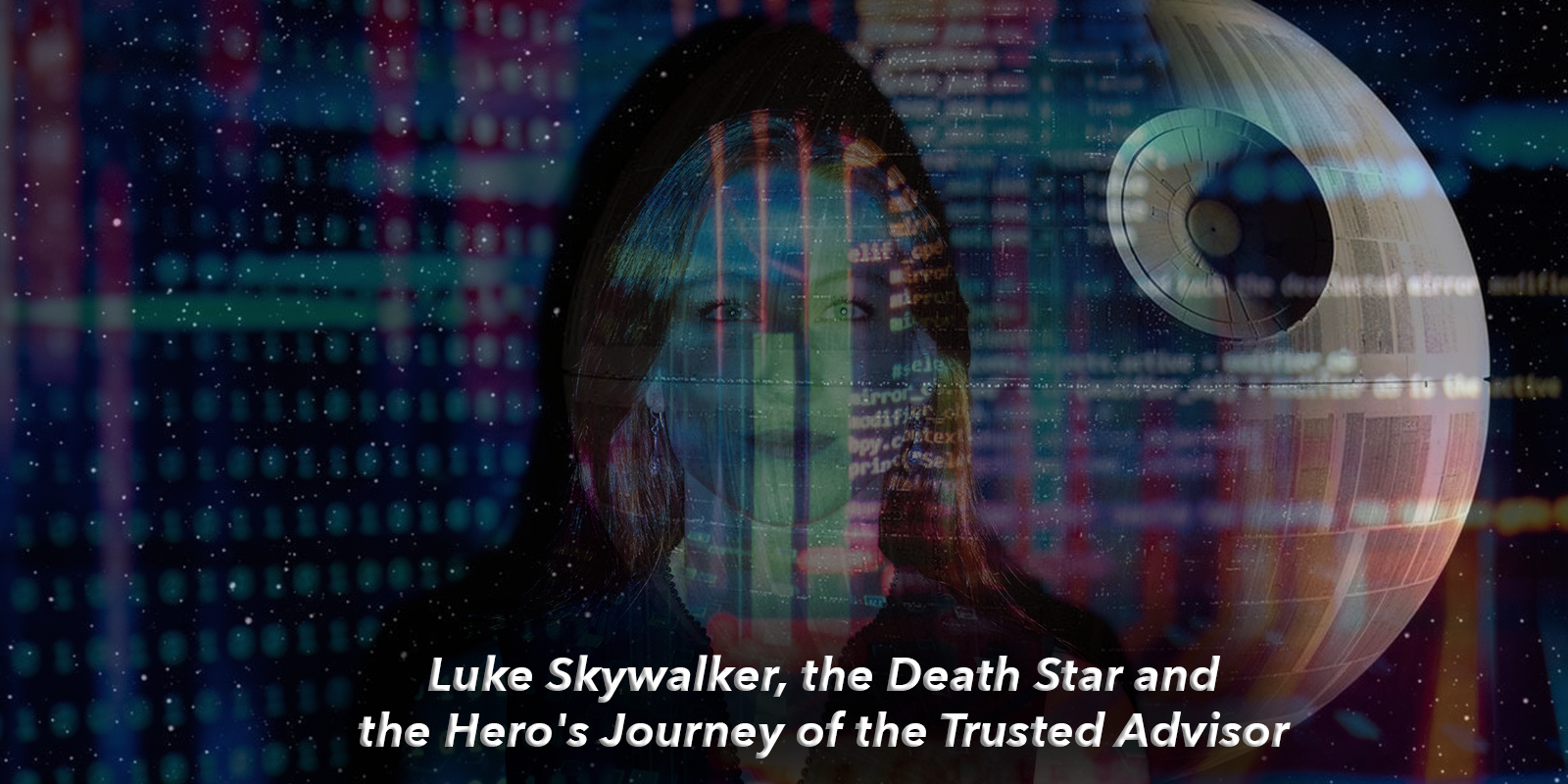
I grew up in the golden age of the original Star Wars and accidentally spent the early part of my career working on the Death Star selling telecom. I don’t think any kid aspires to be a Stormtrooper just as they don’t daydream about being a telecom rep. I certainly never fantasized about cold calling businesses asking if I could re-pic their intralata service. For the latter half of the 90’s and into the new Millennium I worked for a large mother of all telcos whose logo was affectionately referred to as the Death Star. Don’t get me wrong we weren’t actively (to my knowledge) trying to blow anyone up but just like Darth Vader floating around in his mobile battle station vaporizing unsuspecting planets, we had a bit of a warped world view. We thought we were the center of the universe and clients should be lucky to work with us. And why wouldn’t they? We sold every service under the sun – ATMs, VPNs, Frame Relay, DSL, ISDN (Both BRI and PRI!) IP, Private Line, Wavelength, Dark Fiber, TDM, Advanced Routing, DID/DOD, and my all-time favorite telecom acronym POTS lines or Plain Old Telephone Service.
We were all things to all people. The masses couldn’t live without us. In fact, we knew what was better for them than they did. Sure, there were mountains of red tape, billing issues that would take years to unravel, occasional outages, surprise contract auto renewals, and a revolving door of sales reps all chasing a monthly quota to survive. And although we knew about them we kind of ignored the other Death Stars floating around our tiny galaxy – Qwest, Worldcom, Sprint to name a few not to mention dozens of regional and specialty providers. Each with sales reps all desperately trying to meet a monthly sales quota (most of them couldn’t and the providers like it that way) and all trying to sell not the best services for their client but the services that will make them the best money. A sales rep is not motivated by helping his client base. A sales rep is motivated by his compensation plan.
Not until years later when I was an agent did I truly appreciate what my clients were going through with an endless stream of provider reps all telling me they had the best products on the planet. It was dizzying and I had a hard time telling them apart.
Fast forward to today and there has been an explosion of providers. They are less like massive Death Stars trying to be all things to all companies and more like tiny stars that dot the sky offering one or two services with more that are emerging every day. The pace and rate of change is frantically increasing, and clients could spend all day, every day, meeting with Cloud, Cybersecurity, Unified Communications, Hosted Contact Center, SD-WAN, Colocation, and Network providers. They could paper the walls of their office with proposals and spend day and night on webinars trying to keep up with the technology and deciphering which of the 40 reps they spoke with last truly did have the “best platform on the planet.”
But what if there was a better way?
What if there was someone that didn’t think that they were the center of the Universe but rather understood the entire Universe and could explain it.
To keep the analogy going, there has been a rebellion against the large incumbents. Now more than ever companies are seeking specialized providers. The Death Stars have been metaphorically blown up into thousands of companies that offer a handful of services and try to do them extremely well. There aren’t a dozen reps anymore lining up to see clients. There are hundreds all touting the best services and platforms on the planet.
Enter the Trusted Advisor. He doesn’t carry a quota. He doesn’t have a bias to a particular company, service or provider. His entire mission is to study, understand and catalog data on the provider ecosystem. What are the provider's strengths, weaknesses, platform stability, day 2 capabilities for installation and support, contract gotcha’s, best pricing, areas of the world and services where they excel. What is on their roadmap and what is their long-term viability. The Trusted Advisor doesn’t focus on the next sale. His true value comes from long term client partnerships.
The Trusted Advisors (ok the Jedi’s of the story - I can’t resist) have brought order to the chaos. They are in alignment with the client and sit with them on their side of the table. They don’t care which provider is selected as long as it truly is the best for their clients. In between days spent talking to clients and prospects they spend their spare time cataloging, studying and learning about the latest technology, providers and services; with each successive client experience intimately understanding the providers that much better. They are the vanguard of the client’s technology team. They do the heavy lifting so the clients can focus on the critical technology initiatives to run their business. They return one of the most important commodities to their clients – time.
Today, the technology infrastructure in support of layer 7 applications and integration to the business has become more critical than ever. It can mean the difference between a profitable company with a loyal expanding client base vs. a competitor that is struggling to stay afloat. Clients need to build, protect, and integrate, their technology infrastructure not only with their applications but also with the cloud providers where they reside. The Trusted Advisor provides order to a chaotic universe and brings the best in breed technology partners to the clients’ doorstep. In an ever-expanding universe of technology and chaos they are a powerful force to have on your side.


